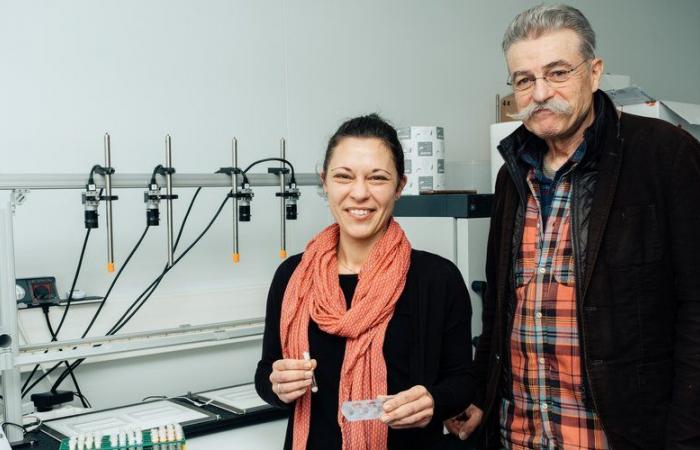the essential
Is the winning passed on? Do certain experiences transform behavior? Séverine Trannoy and Etienne Danchin, researchers in Toulouse, answer these questions of heredity in a podcast from Quai des Savoirs.
For fifteen years, Séverine Trannoy has been studying the behavior of fruit flies, these little flies that come to eat fruit in our kitchens and which are also called “vinegar flies”. At the Animal Cognition Research Center (CBI, Center for Integrative Biology/Toulouse 3-Paul-Sabatier), where she works as a CNRS research fellow, the neurobiologist is interested in the processes that regulate social behavior in fruit flies. .
So, when she was contacted to participate in the podcast “Being a winner, is it hereditary?”, co-produced by Quai des Savoirs, she already had her own idea on the issue. “In my team, we seek to understand the effects of experience on future behavior. And the winner/loser effect is known throughout the animal kingdom: being dominant at one moment influences future behavior , just as a defeat leads to one more chance of losing in a competitive situation”, explains Séverine Trannoy.
A fight in an arena of a few centimeters
To study dominance statuses, Séverine Trannoy’s team created a “fight club” for flies. Two male fruit flies (the phenomenon is not intense enough to be studied in females) are placed in small circular arenas where they will have to fight to access the food resource. The “winner” stays in the arena to fight again to see if he has a better chance of winning. “And this is the case. The winner effect persists in the short term but in the long term, it is rather the loser effect which remains for several days and this corresponds to what we observe in the animal kingdom, the consequences of this negative experience are more restrictive. Now, we seek to understand whether this winner effect corresponds to an instinctive response of the animal or whether it is a more complex process which requires learning. (recognition of territory, its opponent, the environment) and what areas of the brain are involved,” adds the neuroscientist.
“Transmission is also non-genetic”
Emeritus research director at the CNRS, Etienne Danchin also participated in this podcast. “What interests me is heredity. We often talk about children who resemble their parents and in this case, we immediately think of DNA while many other mechanisms greatly participate in resemblance. But what is transmitted? Is there an advantage to transmitting?”, adds the biologist, specialist in non-genetic heredity. “Transmission is not limited to DNA sequences, we also transmit trauma, instructions for use. A mouse living near a cat will have to find strategies in the face of danger and it will transmit them to its descendants. This transmission has an advantage. Being a winner also depends on the context,” concludes Etienne Danchin.
Tech






